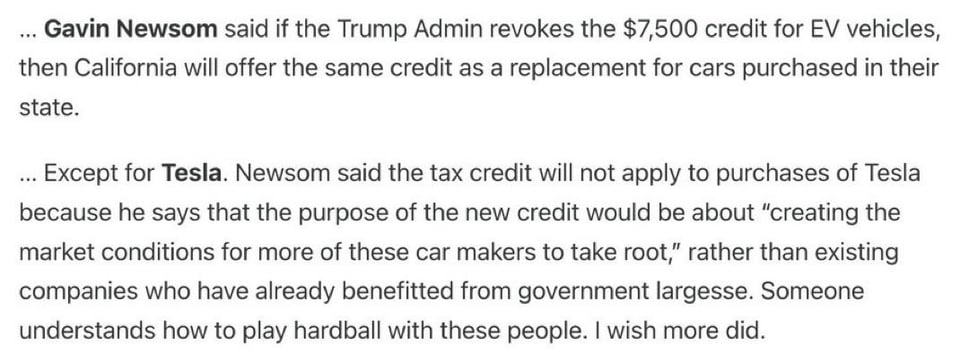Wednesday, November 27, 2024. Annette’s News Roundup.
Joe is always busy.
In case you wonder who made the peace.
Today, I have good news to report from the Middle East.
— President Biden (@POTUS) November 26, 2024
I have spoken to the Prime Ministers of Lebanon and Israel. And I am pleased to announce:
They have accepted the United States’ proposal to end the devastating conflict between Israel and Hezbollah.
Biden: Under the deal reached today effective at 4:00 A.M. tomorrow local time, the fighting across the Israel Lebanon border will end and it is designed to be a permanent cessation of hostilities.
Based on their temperament and commitment to being productive members of society, I hereby pardon Peach and Blossom.
— President Biden (@POTUS) November 25, 2024
They will now head back to Minnesota to serve as ambassadors of America’s top turkey growing state, and inspire future generations of agricultural students. pic.twitter.com/JQyZQPnEVA

A White House spokesman said on Monday that President Joe Biden and First Lady Jill Biden will attend Donald Trump's inauguration in January.
— Republicans against Trump (@RpsAgainstTrump) November 26, 2024
This is a reminder that Donald Trump did not attend President Biden's inauguration, the first incumbent president to skip his successor's… pic.twitter.com/y58rbU3QQM
President Biden tears up during farewell dinner for him at the White House. pic.twitter.com/6OI9ZWCpGp
— Mike Sington (@MikeSington) November 25, 2024
NEW: President Biden has asked Congress for another $24 billion in aid to Ukraine.
— Republicans against Trump (@RpsAgainstTrump) November 26, 2024
According to the PoliticoPro report, $8 billion will go for the Ukraine Security Assistance Initiative to fund US company contracts to arm Kyiv, and $16 billion to refill US weaponry stock pic.twitter.com/fkJeuEHwLi
I love these photos of President Biden from tonight's Friendsgiving event with service members and their families in the Staten Island. 🦃 pic.twitter.com/rhJNsOi94E
— Chris D. Jackson (@ChrisDJackson) November 26, 2024
Now that the election is over, major media outlets suddenly decided the economy is doing great. pic.twitter.com/Z4xv0FWoXB
— Matt McDermott (@mattmfm) November 26, 2024
Peach and Blossom came a long way to see us at the White House this morning, traveling over 1,100 miles in two days from Minnesota to Washington, D.C.
— President Biden (@POTUS) November 25, 2024
Through it all they stayed calm – and gobbled on. pic.twitter.com/Fgsg6ycTKs
Getting through.
Down About the Election? There Is a Speech I Want You to Read.
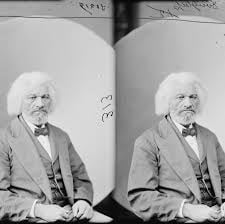
Douglass. Brady-Handy photograph collection/Library of Congress.
Most Americans who know of Frederick Douglass know that he lived to see the destruction of chattel slavery and the liberation of Black Americans from the despotism of human bondage. Less well known is the fact that Douglass would also live long enough to see the slave stand free, stand a brief moment in the sun, and move back again toward slavery, to paraphrase W.E.B. Du Bois in his book “Black Reconstruction.”
Douglass died in 1895 as the counterrevolution to Reconstruction and the agrarian rebellions of the 1880s and 1890s took final shape. In 1890, Mississippi imposed its Jim Crow Constitution. Other states in the South soon followed suit. In 1896, the Supreme Court would affirm “separate but equal” in Plessy v. Ferguson, a landmark ruling that would stand until 1954, when it was overturned by Brown v. Board of Education.
In 1894 at Metropolitan African Methodist Episcopal Church in Washington, D.C., Douglass delivered the last great speech of his career. Titled “The Lessons of the Hour,” it was his attempt to make sense of the rise of Jim Crow and the violent retrenchment of the era. I want to share a little of the speech with you because I think it is worthwhile to read the perspective of someone who continues to fight for his ideals even in the midst of profound reversal and defeat.
Here’s Douglass, moving toward his conclusion.
I have sometimes thought that the American people are too great to be small, too just and magnanimous to oppress the weak, too brave to yield up the right to the strong and too grateful for public services ever to forget them or fail to reward them. I have fondly hoped that this estimate of American character would soon cease to be contradicted or put in doubt. But the favor with which this cowardly proposition of disfranchisement has been received by public men, white and black, by Republicans as well as Democrats, has shaken my faith in the nobility of the nation. I hope and trust all will come out right in the end, but the immediate future looks dark and troubled. I cannot shut my eyes to the ugly facts before me.
He continued:
Strange things have happened of late and are still happening. Some of these tend to dim the luster of the American name and chill the hopes once entertained for the cause of American liberty. He is a wiser man than I am who can tell how low the moral sentiment of this republic may yet fall. When the moral sense of a nation begins to decline and the wheel of progress to roll backward, there is no telling how low the one will fall or where the other may stop.
As much as Douglass intends to stand in the way of those would destroy the victory of an earlier age, he knows that for him, “Time and strength are not equal to the task before me.” And yet:
But could I be heard by this great nation, I would call to mind the sublime and glorious truths with which, at its birth, it saluted a listening world. Its voice then was as the trumpet of an archangel, summoning hoary forms of oppression and time-honored tyranny, to judgment. Crowned heads heard it and shrieked. Toiling millions heard it and clapped their hands for joy. It announced the advent of a nation, based upon human brotherhood and the self-evident truths of liberty and equality. Its mission was the redemption of the world from the bondage of ages.
Douglass concludes:
Apply these sublime and glorious truths to the situation now before you. Put away your race prejudice. Banish the idea that one class must rule over another. Recognize the fact that the rights of the humblest citizen are as worthy of protection as are those of the highest, and your problem will be solved; and, whatever may be in store for it in the future, whether prosperity or adversity, whether it shall have foes without or foes within, whether there shall be peace or war, based upon the eternal principles of truth, justice and humanity and with no class having any cause of complaint or grievance, your Republic will stand and flourish forever.
I hope you find this as useful as I do. (Jamelle Bouie, Column, New York Times).
Unfortunately, you need to learn the word “impoundment.”
Expect to hear it frequently when the orange bulldog returns to the White House.
How Trump Plans to Seize the Power of the Purse From Congress — ProPublica

The second-term president likely will seek to cut off spending that lawmakers have already appropriated, setting off a constitutional struggle within the branches. If successful, he could wield the power to punish perceived foes.
Donald Trump is entering his second term with vows to cut a vast array of government services and a radical plan to do so. Rather than relying on his party’s control of Congress to trim the budget, Trump and his advisers intend to test an obscure legal theory holding that presidents have sweeping power to withhold funding from programs they dislike.
“We can simply choke off the money,” Trump said in a 2023 campaign video. “For 200 years under our system of government, it was undisputed that the president had the constitutional power to stop unnecessary spending.”
His plan, known as “impoundment,” threatens to provoke a major clash over the limits of the president’s control over the budget. The Constitution gives Congress the sole authority to appropriate the federal budget, while the role of the executive branch is to dole out the money effectively. But Trump and his advisers are asserting that a president can unilaterally ignore Congress’ spending decisions and “impound” funds if he opposes them or deems them wasteful.
Trump’s designs on the budget are part of his administration’s larger plan to consolidate as much power in the executive branch as possible. This month, he pressured the Senate to go into recess so he could appoint his cabinet without any oversight. (So far, Republicans who control the chamber have not agreed to do so.) His key advisers have spelled out plans to bring independent agencies, such as the Department of Justice, under political control.
If Trump were to assert a power to kill congressionally approved programs, it would almost certainly tee up a fight in the federal courts and Congress and, experts say, could fundamentally alter Congress’ bedrock power.
“It’s an effort to wrest the entire power of the purse away from Congress, and that is just not the constitutional design,” said Eloise Pasachoff, a Georgetown Law professor who has written about the federal budget and appropriations process. “The president doesn’t have the authority to go into the budget bit by bit and pull out the stuff he doesn’t like.”
Trump’s claim to have impoundment power contravenes a Nixon-era law that forbids presidents from blocking spending over policy disagreements as well as a string of federal court rulings that prevent presidents from refusing to spend money unless Congress grants them the flexibility.
In an op-ed published Wednesday, tech billionaire Elon Musk and former Republican presidential candidate Vivek Ramaswamy, who are overseeing the newly created, nongovernmental Department of Government Efficiency, wrote that they planned to slash federal spending and fire civil servants. Some of their efforts could offer Trump his first Supreme Court test of the post-Watergate Congressional Budget and Impoundment Control Act of 1974, which requires the president to spend the money Congress approves. The law allows exceptions, such as when the executive branch can achieve Congress’ goals by spending less, but not as a means for the president to kill programs he opposes.
Trump and his aides have been telegraphing his plans for a hostile takeover of the budgeting process for months. Trump has decried the 1974 law as “not a very good act” in his campaign video and said, “Bringing back impoundment will give us a crucial tool with which to obliterate the Deep State.”
Musk and Ramaswamy have seized that mantle, writing, “We believe the current Supreme Court would likely side with him on this question.”
The once-obscure debate over impoundment has come into vogue in MAGA circles thanks to veterans of Trump’s first administration who remain his close allies. Russell Vought, Trump’s former budget director, and Mark Paoletta, who served under Vought as the Office of Management and Budget general counsel, have worked to popularize the idea from the Trump-aligned think tank Vought founded, the Center for Renewing America.
On Friday, Trump announced he had picked Vought to lead OMB again. “Russ knows exactly how to dismantle the Deep State and end Weaponized Government, and he will help us return Self Governance to the People,” Trump said in a statement.
Vought was also a top architect of the controversial Project 2025. In private remarks to a gathering of MAGA luminaries uncovered by ProPublica, Vought boasted that he was assembling a “shadow” Office of Legal Counsel so that Trump is armed on day one with the legal rationalizations to realize his agenda.
“I don’t want President Trump having to lose a moment of time having fights in the Oval Office about whether something is legal or doable or moral,” Vought said.
Trump spokespeople and Vought did not respond to requests for comment.
The prospect of Trump seizing vast control over federal spending is not merely about reducing the size of the federal government, a long-standing conservative goal. It is also fueling new fears about his promises of vengeance.
A similar power grab led to his first impeachment. During his first term, Trump held up nearly $400 million in military aid to Ukraine while he pressured President Volodymyr Zelenskyy to open a corruption investigation into Joe Biden and his family. The U.S. Government Accountability Office later ruled his actions violated the Impoundment Control Act.
Pasachoff predicted that, when advantageous, the incoming Trump administration will attempt to achieve the goals of impoundment without picking such a high-profile fight.
Trump tested piecemeal ways beyond the Ukrainian arms imbroglio to withhold federal funding as a means to punish his perceived enemies, said Bobby Kogan, a former OMB adviser under Biden and the senior director of federal budget policy at the left-leaning think tank American Progress. After devastating wildfires in California and Washington, Trump delayed or refused to sign disaster declarations that would have unlocked federal relief aid because neither state had voted for him. He targeted so-called sanctuary cities by conditioning federal grants on local law enforcement’s willingness to cooperate with mass deportation efforts. The Biden administration eventually withdrew the policy.
Trump and his aides claim there is a long presidential history of impoundment dating back to Thomas Jefferson.
Most historical examples involve the military and cases where Congress had explicitly given presidents permission to use discretion, said Zachary Price, a professor at the University of California College of the Law, San Francisco. Jefferson, for example, decided not to spend money Congress had appropriated for gun boats — a decision the law, which appropriated money for “a number not exceeding fifteen gun boats” using “a sum not exceeding fifty thousand dollars,” authorized him to make.
President Richard Nixon took impoundment to a new extreme, wielding the concept to gut billions of dollars from programs he simply opposed, such as highway improvements, water treatment, drug rehabilitation and disaster relief for farmers. He faced overwhelming pushback both from Congress and in the courts. More than a half dozen federal judges and the Supreme Court ultimately ruled that the appropriations bills at issue did not give Nixon the flexibility to cut individual programs.
Vought and his allies argue the limits Congress placed in 1974 are unconstitutional, saying a clause in the Constitution obligating the president to “faithfully execute” the law also implies his power to forbid its enforcement. (Trump is fond of describing Article II, where this clause lives, as giving him “the right to do whatever I want as president.”)
The Supreme Court has never directly weighed in on whether impoundment is constitutional. But it threw water on that reasoning in an 1838 case, Kendall v. U.S., about a federal debt payment.
Immigrants’ Resentment Over New Arrivals Helped Boost Trump’s Popularity With Latino Voters
“To contend that the obligation imposed on the President to see the laws faithfully executed, implies a power to forbid their execution, is a novel construction of the constitution, and entirely inadmissible,” the justices wrote.
During his cutting spree, Nixon’s own Justice Department argued roughly the same.
“With respect to the suggestion that the President has a constitutional power to decline to spend appropriated funds,” William Rehnquist, the head of the Office of Legal Counsel whom Nixon later appointed to the Supreme Court, warned in a 1969 legal memo, “we must conclude that existence of such a broad power is supported by neither reason nor precedent.” (ProPublica).
Let’s keep track.
The news appears a bit better but we need to work harder. Remember women have had the vote for only slightly more than 100 years.
U.S. sees record number of women state lawmakers.
Women will hold a record number of state legislative seats next year, filling about a third of seats nationwide.
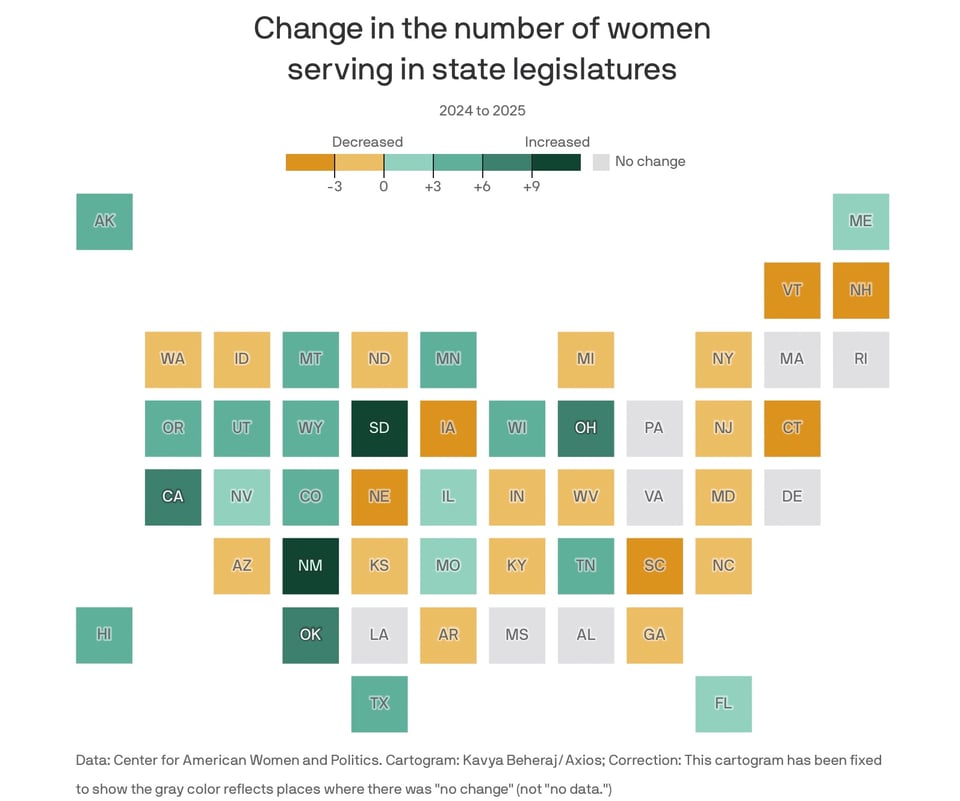
Why it matters: The most notable increases were in New Mexico and Colorado, where women will make up most lawmakers for the first time, AP reports.
By the numbers: 19 states will increase the number of women in their state legislatures in 2025, according to Rutgers' Center for American Women and Politics.
Female GOP state lawmakers, at least 851, will break the record set last year.
Yes, but: The uptick was small. And at least 13 states saw losses in female representation. (Axios).
Some fight back against a bully.
Mexican President Claudia Scheinbaum writes a letter to Trump on tariffs.
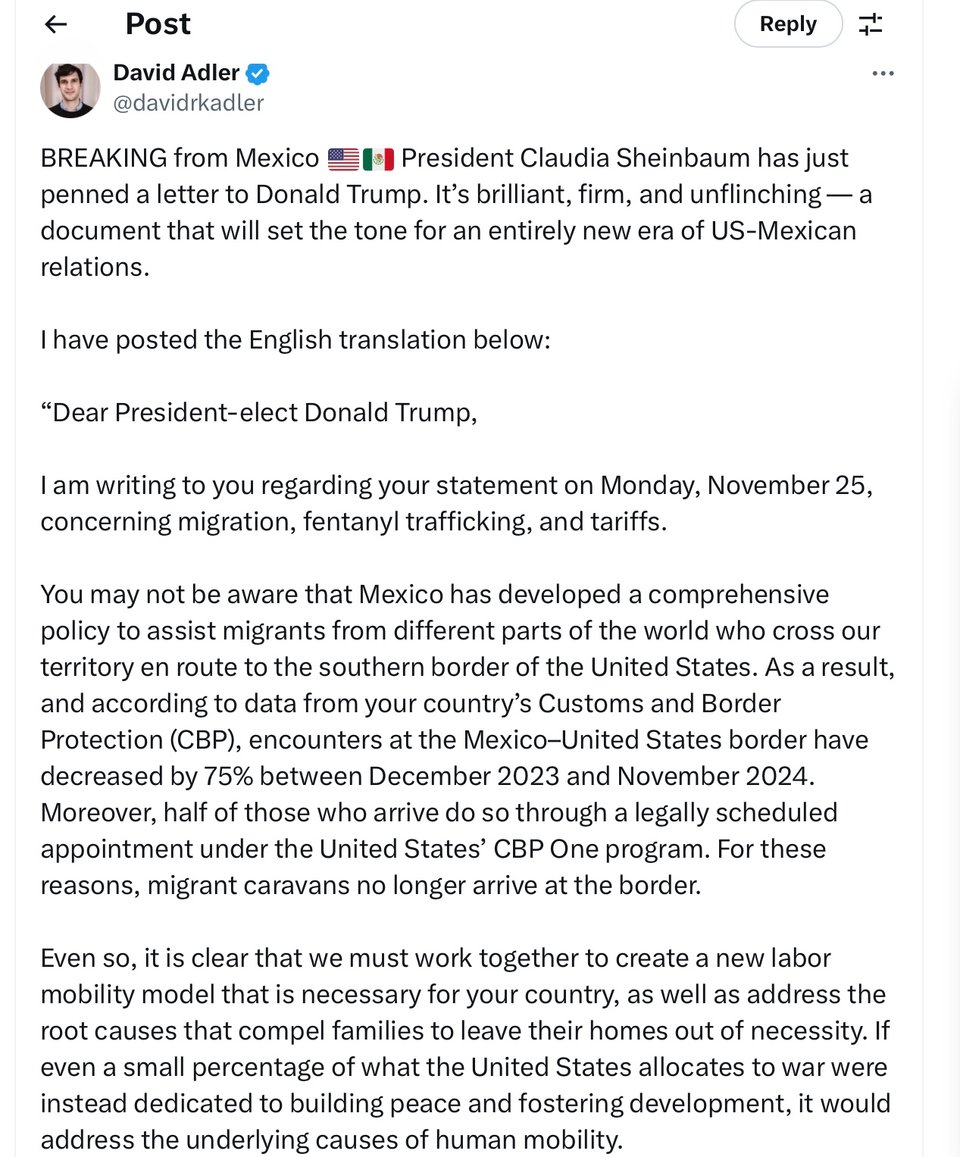
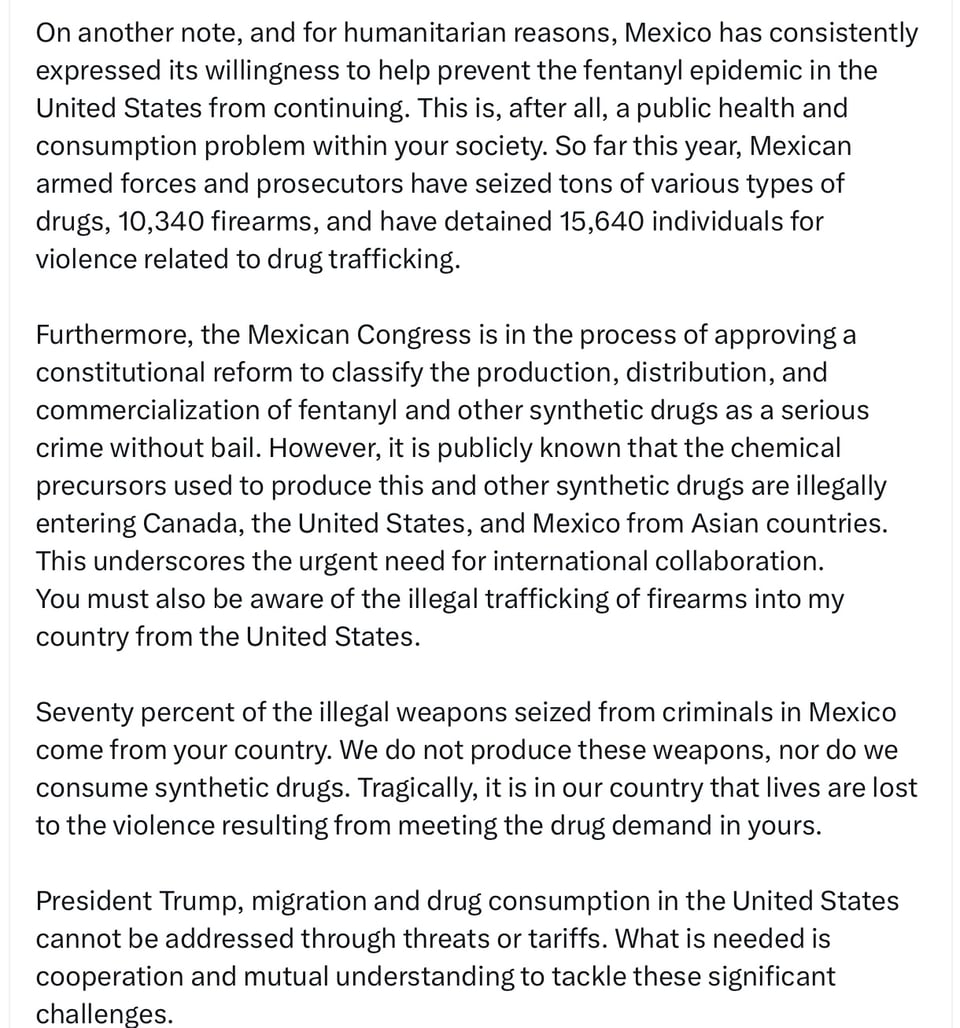
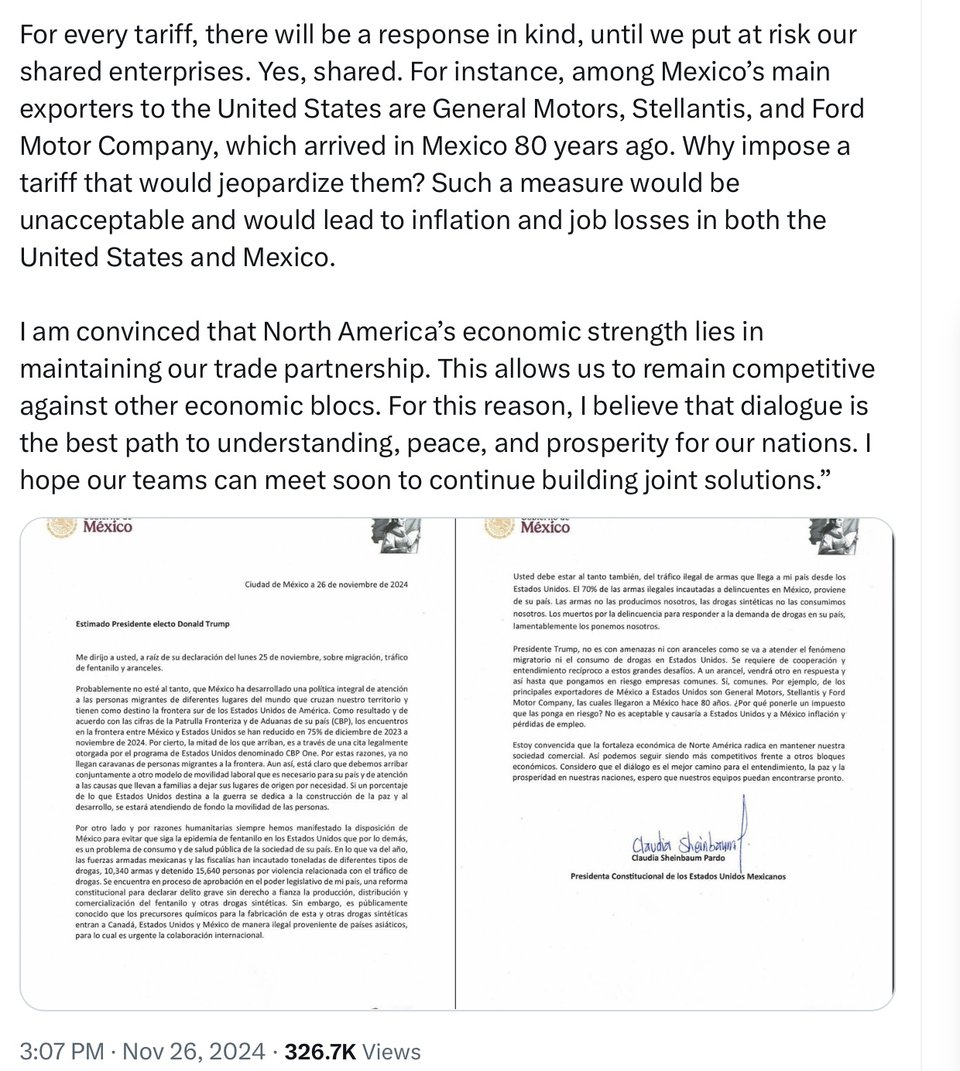
Trump plans to end tax credits for Electric Vehicles. Gavin Newsom gives a tax credit to Electric Vehicles in California (except Teslas… tee hee).
